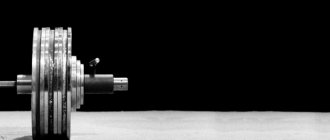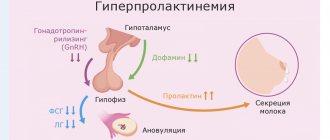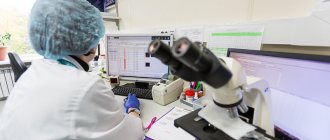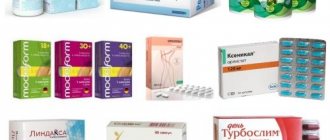The role of arginine
Arginine is a conditionally essential amino acid. This means that it is produced in the body, but in limited quantities. The body cannot satisfy the greater need for arginine - it has to be supplied with food and supplements. The main role of arginine is related to blood vessels - it is a donor of nitric oxide (NO), which is synthesized in the endothelium (inner surface) of all blood vessels. Nitric oxide increases the elasticity of the walls and expands the lumen of arteries, veins, and capillaries. Blood flow and blood supply to all organs increases. First of all, this is noticeable on the working muscles of the skeletal muscles, on the heart, and brain cells. Visible effects of nitric oxide:
- During strength exercises, muscles become thicker, engorged with blood, and grow literally before our eyes - which is the pumping effect.
- High blood pressure returns to normal, the heart beats powerfully and rhythmically.
- The brain works clearly and reacts quickly to changing situations.
- Due to blood flow to the genitals, erection increases.
- Fast healing of wounds.
But what does arginine have to do with it? This amino acid is a necessary element for the synthesis of nitric oxide. And since the length of blood vessels in the human body is enormous (100 thousand km!), the need for arginine for the pumping effect is considerable. It is synthesized in the liver and, partially, in the kidneys, enters the bloodstream, where it participates in the reactions of NO synthesis.
The second, no less important role of arginine in metabolism is the removal of protein waste, or more precisely, nitrogen from the body. The process of urea formation begins in the liver under the influence of the enzyme arginase and ends in the kidneys, from where protein waste is excreted in the urine.
In addition, arginine stimulates the release of growth hormone somatotropin into the blood, which regulates anabolic processes, in particular muscle growth. Here it should be noted the pronounced wound-healing effect of the amino acid, which regulates collagen synthesis.
L-arginine - what is it and why is it needed?
L-arginine is an isomer of the amino acid arginine, which is part of proteins. L-arginine is considered a conditionally essential amino acid because our body synthesizes it, but in insufficient quantities. And then you have to look for an external source. Who suffers from L-arginine deficiency:
- children - their body does not produce this amino acid at all;
- elderly people in whom L-arginine deficiency is associated with age-related changes and diseases;
- people under heavy stress.
The amino acid is involved in all biochemical processes. Until the end of the last century, it was believed that its main function was, along with methionine and glycine, to serve as a raw material for the synthesis of creatine, which ensures energy metabolism in muscle and nervous tissue. The revolutionary discovery of American scientists, who received the Nobel Prize for it, radically changed the attitude towards L-arginine.
Antimicrobial agents are used to treat bacterial infections caused by pathogenic microorganisms. Among the most effective drugs is Sulgin Avexima, which is used primarily for intestinal diseases. Read more in the article: “what does sulgin avexima help with.”
It turned out that it is a source of nitric oxide. Research has proven that nitric oxide supports the health of the cardiovascular and reproductive systems, improves metabolic processes, is responsible for tissue nutrition, and supports the immune system. The main source of L-arginine is food. But the easiest and fastest way to replenish its reserves is a dietary supplement.
The body's need for arginine
Every day the adult body needs 5-6 g of arginine. A bodybuilder who is concerned with pumping up muscles needs an additional 3-9 g per day in supplement form. In older people, arginine synthesis is reduced, so symptoms of its deficiency appear:
- the formation of blood clots as a result of blood stagnation;
- atherosclerosis;
- high blood pressure;
- weakening of mental activity;
- pre-infarction condition;
- obesity.
Taking the supplement at a dose of 2-3 g per day serves as a prophylactic measure to prevent these changes. People with mental disorders and viral infections should not take additional arginine (it provokes relapses of herpes).
An excess of arginine causes nausea, hypotension, irritability and allergic rashes. The additive has an unpleasant taste and is difficult to take in large quantities in powder form.
After 35 years, there is a decrease in internal arginine synthesis, so you should pay attention to foods rich in this amino acid.
What is arginine for?
Arginine has many beneficial properties: it is used both for prevention and in the complex treatment of various diseases. This supplement plays a key role in the synthesis of many proteins (ornithine, creatine) and is a donor of nitric oxide (NO), which was proven by studies conducted in 2007. The results show that arginine has a vasodilatory effect, which improves the supply of oxygen and nutrients to the muscles.1
The supplement promotes fat burning. A double-blind study conducted among obese individuals of both sexes aged 30 to 64 years old showed the following results: subjects took part in a 21-day weight loss program that included a low-calorie diet and exercise. After this, they were divided into two groups, one of which received arginine and the other a placebo. The experimental group experienced more accelerated weight loss and a decrease in waist circumference. An improved response to oxidative stress was also noted.2
This amino acid has gained popularity among athletes due to its effectiveness in building muscle mass when used in combination with testosterone. Arginine's ability to cleanse the body of toxins accumulated in the body as a result of protein metabolism makes it an extremely useful supplement. As a result of its influence, muscle nutrition improves, their recovery accelerates, and blood pressure decreases. The lowering of blood pressure due to the action of arginine has been proven in studies conducted among young men from 18 to 29 years old.3
Arginine increases blood flow, and some scientific studies have shown its ability to increase cerebral circulation. In a 2004 study, Zimmermann et al found that L-arginine injections in elderly patients aged 63 years and older with risk factors for cardiovascular disease showed an increase in mean cerebral blood flow velocity.4
Getting arginine from food
60-70% of the need for arginine is satisfied during its circulation in the body, 20-25% comes from food. The first place in the content of the amino acid arginine is occupied by pumpkin seeds: 5 g per 100 g of product. substances, to meet the daily requirement for an adult, it is enough to chew a handful of 40 g of seeds. The second most arginine content is the product beloved by men – meat. Different types of meat contain up to 2 grams of arginine. A required glass of milk per day for children gives them 1g of extra amino acid. To create a diet rich in arginine, use the data in the table.
What is arginine?
Arginine is a conditionally essential amino acid that forms the basis of protein and is produced in small quantities in the human body. It exists in the form of L- and D-isomers. L-arginine brings the greatest benefit to humans. It can be obtained from food and dietary supplements. In the presence of chronic diseases, diabetes, injuries or regular physical activity, the human body's need for arginine increases.
Arginine is responsible for the synthesis of proteins and proteins, takes part in the formation of nitric oxide, ensuring the normal functioning of all organs of the human body. The amino acid stimulates the production of insulin and is also necessary for the production of creatine, which affects brain function.
Amount of arginine in food
| Name | Amount of arginine g/100 g |
| pumpkin seed | 5,5 |
| Peanut | 2,9 |
| Walnut | 2,3 |
| sunflower seed | 1,8 |
| Lentils | 2 |
| Peas | 1,6 |
| Beans | 1,1 |
| Cheese | 1,3 |
| Chicken | 1,2 |
| Beef | 1 |
| Pork | 0,8 |
| Red caviar | 1,7 |
| Sea fish | 1,2-1,0 |
| Egg white | 0,8 |
| Wheat flour | 0, 64 |
| Buckwheat | 1.1 |
| Rice | 0,6 |
| Milk | 0,3 |
Sources of arginine
Arginine is primarily found in meat , especially red meat, poultry, turkey and chicken breast, fish and dairy products. It is also found in pumpkin seeds , soybeans, peanuts, spirulina, chocolate and lentils. Arginine is also produced in the laboratory as a medicine or dietary supplement.[5]
| Food product | Amount of arginine per 100 g |
| Pork | 4841 mg |
| Egg white | 4813 mg |
| Spirulina | 4148 mg |
| Pumpkin seeds | 4033 mg |
| Cod | 3759 mg |
| Peanut | 3349 mg |
| Soya beans | 3153 mg |
| Beef | 2336 mg |
| Chicken meat | 2159 mg |
| Tuna | 1794 mg |
Why the supplement doesn't work
It has been experimentally established that it is useless to take more than 6 g of arginine per day - in large quantities it will not leak into the blood and will not provide a pumping effect. The fact is that arginine binds to the enzyme arginase in the intestine and goes to the liver to perform its second metabolic function there. It is involved in the utilization of protein waste (ammonia), converts it into urea and carries it through the kidneys to the outside.
The supplement works for pumping in those athletes who have little arginase in their bodies - then arginine is absorbed into the blood and becomes a donor of NO, with all the ensuing effects. Such athletes praise the supplement and consider it to work. To ensure pumping, it must be taken in quantities from 3 to 7 grams. It is advisable to drink arginine on an empty stomach: before meals or 1-1.5 hours after it (so that the insidious arginase does not take the supplement to the liver). When calculating the dosage, take into account the arginine content in the supplements you drink before exercise - it is included in most pre-workout complexes.
Everyone else can be advised to take its analogue, citrulline malate, instead of arginine. The peculiarity of this supplement is that, bypassing the liver and without contacting arginase, it enters the bloodstream, where it is converted into arginine and participates in the synthesis of nitric oxide.
Arginine for athletes
This amino acid is widely used among weightlifters and bodybuilders for three main reasons:
- It promotes internal secretion of growth hormone;
- Involved in the synthesis of creatine;
- It is a donor of nitric oxide.
A study of twenty weightlifters who were prescribed three grams of L-arginine for 8 weeks showed the amino acid's effects on muscle growth, with all participants experiencing significant gains in mass and muscle mass compared to the control group.5
Recommendations for use and side effects
Arginine supplements are taken one hour before meals or one hour after meals. If your diet contains fatty foods, then you can take the amino acid only 3–5 hours after eating them, since arginine is incompatible with fatty foods.
Athletes take the amino acid half an hour before the start of training or 30 minutes after its completion. To stimulate the secretion of growth hormone, it is also recommended to consume arginine before bed. The amino acid is usually taken 2-3 times daily, following the directions on the supplement package.
Experimental studies have shown that side effects from arginine consumption are very rare if a person follows the recommended dosage. In rare cases, nausea, diarrhea or headaches may occur while taking the amino acid. If you are using any medications, you should consult your doctor before taking arginine. Women during pregnancy and breastfeeding, as well as people with asthma and individual intolerance to the substance, are contraindicated in food supplements containing arginine.
Benefits for the body
Arginine participates in the cycle of conversion of ammonia to urea, thereby reducing the risk of toxins entering the blood and brain, protecting against cirrhosis and various types of hepatitis.
Also, high levels of ammonia in the body lead to insomnia. Therefore, it is important for people with sleep disorders to take care of adequate levels of arginine in the body.
By stimulating the production of the hormones glucagon and insulin, arginine helps build muscle mass and, conversely, prevents fat accumulation. And by increasing cortisol levels, it relieves emotional stress and minimizes the effects of stress.
Thus, the therapeutic benefits of arginine include the following:
- strengthen the cardiovascular system;
- promote the treatment of erectile dysfunction;
- participate in the treatment of anemia;
- act as a growth stimulator in children and adolescents;
- improve the results of bodybuilders;
- promote muscle growth and development;
- reduce the risk of strokes and heart attacks;
- reduce blood pressure;
- strengthen immunity;
- participate in maintaining normal cholesterol levels;
- promote proper blood flow, in particular in the smallest vessels;
- prevent excessive blood clotting in some disease states;
- help strengthen memory and increase learning ability;
- increase insulin sensitivity;
- prevent and treat atherosclerosis and vascular calcification.
Harm and contraindications
Some evidence suggests that high levels of arginine may worsen herpes symptoms, which can lead to outbreaks because the herpes virus needs arginine to reproduce.
Additionally, ingesting more arginine can indirectly cause ulcers by disrupting the balance of arginine and another amino acid called lysine.
Lysine can treat and prevent herpes, and it shares an absorption pathway with arginine. If more arginine is present, the body cannot absorb enough lysine.
People with cirrhosis of the liver or low blood pressure should avoid taking arginine. These supplements are also not suitable for those who have recently had a heart attack.
Arginine for treatment and prevention
Arginine is classified as a nonessential amino acid, but under some circumstances it becomes an essential substance for the body. The need for arginine is extremely high during periods of intensive growth and pregnancy. It is also important to monitor the consumption of foods rich in amino acids for people with liver disease, cancer, sepsis, and poor wound healing. The results of some studies have shown that arginine consumption reduces the risk of developing necrotizing enterocolitis in premature infants, has a positive effect on intestinal motility, and protects it from inflammation. In addition, there is an assumption that the use of arginine by pregnant women helps to increase the weight of the fetus.
Intravenous administration of the amino acid (calculated from 50 to 250 mg per 1 kg of weight), according to some scientists, can increase the chances of survival in people after a heart attack or stroke. For diabetics, arginine is useful due to its property of stimulating insulin secretion and increasing the liver’s sensitivity to the hormone.
Consumption of this amino acid has a beneficial effect on the condition of people with tuberculosis or HIV: it helps increase weight and reduces cough. There is also an assumption that this substance prevents infectious complications in people after surgery.









